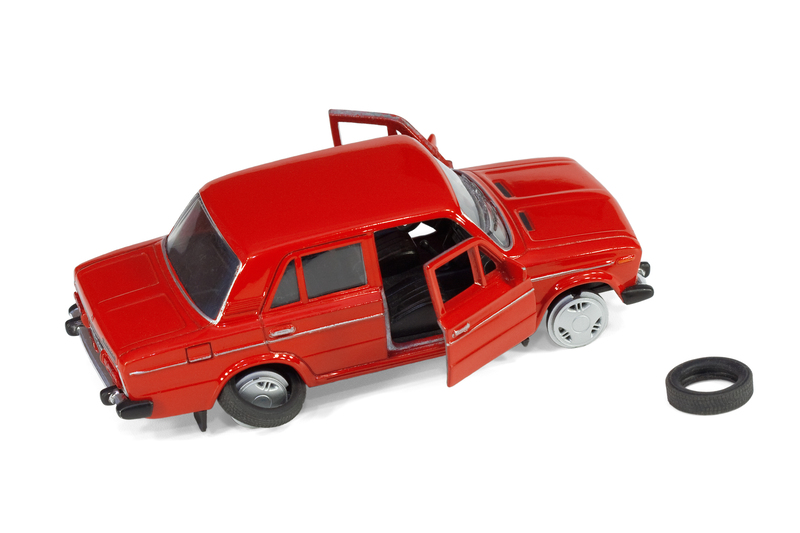Frugal Approaches to Disposing of Bulky Waste Items
Are you confronted with unwanted bulky items cluttering your home or yard--think old sofas, mattresses, appliances, or broken furniture? Disposing of such cumbersome wastes can often feel overwhelming. However, with the right frugal approaches to bulky waste disposal, it's possible to clear your space responsibly while saving both money and the environment. This comprehensive article will guide you through cost-effective, eco-friendly, and practical methods to get rid of those large unwanted items.

Understanding Bulky Waste: What Qualifies?
Bulky waste or large trash items typically refer to objects that are too big or heavy for regular curbside collection. Common examples include:
- Old furniture (couches, beds, wardrobes, tables)
- Large appliances (refrigerators, washers, dryers)
- Mattresses and box springs
- Carpeting or large rugs
- Construction debris
- Yard equipment (lawnmowers, grills)
The disposal of these types of waste can be costly, both financially and environmentally. A frugal mindset focuses on minimizing expenses and maximizing reuse or recycling options.
Why Opt for Frugal and Sustainable Disposal?
Choosing frugal approaches to large waste item disposal isn't just about saving money. It's also about reducing landfill contributions, supporting your community, and sometimes even contributing to charity. Here's why a thrifty strategy towards bulky waste clearance is important:
- Environmental Impact: Landfills are overflowing with perfectly reusable or recyclable materials.
- Community Benefit: Donating or selling items can help others in need.
- Financial Savings: Avoid dump fees and costly private collection services.
- Legal Compliance: Some items are not allowed in standard waste streams and require special disposal.
Assessing Your Bulky Waste
Begin by categorizing your items:
- Reusable: Still in good condition (e.g., gently-used couch or working appliance)?
- Repairable: Could it be fixed or repurposed (e.g., minor fixes for a table)?
- Recyclable: Made of metal, wood, or other recyclable materials?
- Truly Trash: Beyond repair, contaminated, or broken beyond recovery.
Frugal Methods for Bulky Waste Disposal
1. Donate to Charities
Many local and national charities accept furniture, appliances, and lightly used large items. Donating is not only cost-free, but you may also qualify for a tax deduction. Here's how to approach:
- Charity Shops: Habitat for Humanity, Goodwill, The Salvation Army, and local organizations often accept furniture and appliances.
- Pick-Up Services: Some charities offer free pick-up for large items, saving you time and money.
- Non-Profits: Schools, shelters, or community centers may want certain bulk items.
Tip: Always call ahead to check donation policies and item condition requirements.
2. Sell or Give Away Online
Why not turn your bulky waste into cash (or just get it out the door at no cost)?
- Freecycle.org - A global platform for giving and getting free stuff in your area.
- Facebook Marketplace & Craigslist: List items under "free" or at a bargain price to attract takers quickly.
- Neighbor Apps: Nextdoor and similar platforms connect you with neighbors who may salvage or repurpose bulky items.
By leveraging online communities, you often can get rid of large trash items without transportation hassle--the recipient does the heavy lifting!
3. Schedule Local Bulk Pick-Up Days
Many municipalities have free or low-cost bulky item collection days as part of waste management services. Here's how to benefit:
- Check your city or county's sanitation website for pickup schedules.
- Follow the precise rules--some limit the number or type of items, and may require scheduling pick-up in advance.
- Place items curbside according to their instructions to avoid fines.
This option is often free but may be limited to once or twice a year.
4. Drop Off at Recycling or Landfill Centers
Certain bulky waste items--especially those made of metal, wood, or plastic--can be brought directly to recycling facilities or designated waste management centers.
- Metal Scrap Yards: Appliances and bed frames can sometimes even fetch a small cash payout.
- City Facilities: Many cities provide bulk drop-off days or ongoing options for residents.
- Specialty Recyclers: Electronics, mattresses, and tires must often go to specialty sites--some accept items for free or a small fee.
*Remember*: Call first to verify accepted items and any fees.
5. Host a Swap or Yard Sale
Invite neighbors or friends for a swap event or community yard sale. This can help you exchange unwanted bulky items for something you need--or simply ensure items get a second life.
- Swap gently used or unique pieces with others.
- Organize a joint sale to increase traffic and item turnover.
6. Repurpose or Upcycle Bulky Items
Feeling creative? Breathe new life into old items:
- Convert broken dressers into planters or storage benches.
- Break down wood furniture to reuse planks for shelving.
- Turn appliance doors into message boards or unique decor.
DIY upcycling is trending for a reason--it's fun, ecological, and can even save money on future home projects.
Affordable Options When Disposal Is Unavoidable
Sometimes, an item is just too far gone for donation or reuse. Yet, disposing of bulky waste doesn't have to break the bank.
7. Share or Rent a Skip Bin
If you have multiple large items (or are coordinating a neighborhood cleanup), sharing the cost of a roll-off dumpster or skip bin can be affordable. Split the fee with neighbors to make disposal cheaper.
8. Utilize Appliance Store Haul-Aways
Buying a new appliance? Most retailers offer free or low-cost removal of your old items with delivery. Inquire about their appliance disposal service before checkout--sometimes it's even included.
9. Ask for Municipal Vouchers or Discount Programs
Some cities provide subsidized bulky item disposal vouchers for residents. These can cover dump fees, recycling, or special collection events. Always check with your local government.
10. DIY Transport
If local drop-offs are cheap or free, but you lack a vehicle, consider:
- Borrowing a truck from a friend or neighbor.
- Renting a vehicle for just a few hours (Split the cost if possible).
- Tying down smaller bulky items on vehicle roof racks safely.
Bulky Waste Items That Require Special Handling
Some giant unwanted items need cautious or regulated disposal:
- Electronics (e-waste): Contains hazardous materials--seek certified recyclers.
- Mattresses: Can often be recycled; some cities ban them from landfills.
- Refrigerators & Air Conditioners: Require removal of refrigerants (by professionals).
- Hazardous materials (batteries, paints): Never throw in normal trash or bulk waste pickups.
Frugal Disposal Tips and Tricks
- Plan ahead: Monitor city cleanup days and prepare items in advance.
- Disassemble when possible: Smaller parts are easier, safer, and sometimes cheaper to dispose of.
- Ask neighbors: They may want your good-condition or repairable items--or help with transportation.
- Bundle items: Store all your bulky waste until a free dump/drop-off day for maximum savings.
- Join online groups: Freecycle, local Facebook groups, and neighborhood boards are gold mines for frugal disposal.
Summary Table: Cost-Effective Bulk Waste Disposal Methods
| Method | Cost | Environmental Impact | Best For |
|---|---|---|---|
| Donation | Free (potential tax benefit) | Excellent | Gently used furniture/appliances |
| Sell/Give Online | Free/$ | Excellent | Usable but unwanted items |
| Bulk Pick-Up Day | Free/Cheap | Good | Mixed bulky waste |
| Recycling Drop-Off | Low/Free | Excellent | Metal/wood items, certain appliances |
| Yard Sale/Swap | Free/Earn $ | Good | Reusable items, household goods |
| Upcycling | Free/Cheap | Excellent | Creative reuse |
| Skip Bin Share | $$ (split) | Fair | Bulk cleanouts, collaborative efforts |

Frequently Asked Questions
Can I leave bulky waste on the curb for free?
Some cities permit this on specific days only. Check your municipality's website for rules. Unattended dumpings can incur fines!
Are there items I should never dispose of with regular trash?
Yes--electronics, certain appliances, items containing hazardous components, and sometimes even mattresses should never be mixed with household trash. Always follow local laws.
How else can I cut costs when getting rid of large trash items?
- Time your disposal with free events.
- Work with neighbors to split costs or organize collection events.
- Embrace creativity--upcycling and donation can help avoid fees completely.
Conclusion: Be Smart, Save Money, and Help the Planet
Adopting frugal approaches for large item disposal is a win-win for your wallet and the environment. Start with the mantra: reuse, repurpose, recycle, and only as a last resort--dispose. By giving unwanted bulky waste a new lease on life or ensuring it's responsibly handled, you not only free up your space but also contribute positively to your community and the planet.
Stay resourceful, be creative, and use these strategies to handle your next bulky trash removal project with ease and minimal cost!